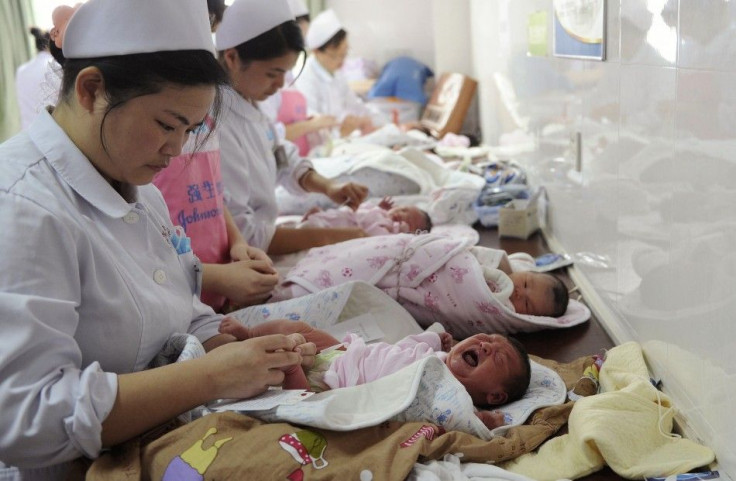Hong Kong To Ban Mainland Chinese Women From Maternity Wards To Stop 'Birth Tourism'

Hong Kong will ban expectant mothers from Mainland China from its hospital maternity wards starting next year.
Echoing the anchor babies argument heard in the United States, Hong Kong's Chief Executive-elect Leung Chun-ying has proposed a zero quota policy that will exclude Chinese women from obstetrics services unless they have a Hong Kong husband, and make it harder for children of mainland parents to get citizenship.
The policy is already popular with Hong Kongers, who feel that Chinese birth tourism is sapping the city-state's resources, according to the BBC, Although Leung's order only applies to public hospitals some private health facilities are expected to follow suit.
According to Time Out Hong Kong, jubilant Hong Kong citizens were declaring that they totally agree with Mr Leung on local radio stations.
With Leung still waiting to take office, the actual quota on mainland births may not actually be zero, although the specifics haven't been established. If they are born in Hong Kong, an ethnic Chinese person currently has the right to live and work there, and also carry a Hong Kong passport.
Nearly half of all children born in Hong Kong in 2010 had mainland parents, and although the new law will likely take effect in 2013, some private Hong Kong hospitals are making sure that mainland women will get care should they need it.
After discussion (with the government), up till now there are at least four private hospitals ... that have agreed to provide obstetric services for this group of mainland expectant mothers this year, Dr. York Chow, Hong Kong's Secretary for Food and Health, said in a statement.
However, priority will be given to those mainland women who have local husbands, and the department of health will still not issue the Confirmation Certificate on Delivery Booking to women whose husbands are non-Hong Kong residents. Additionally, expectant couples will have to prove their identity and marital relationship, according to Chow.
© Copyright IBTimes 2025. All rights reserved.




















